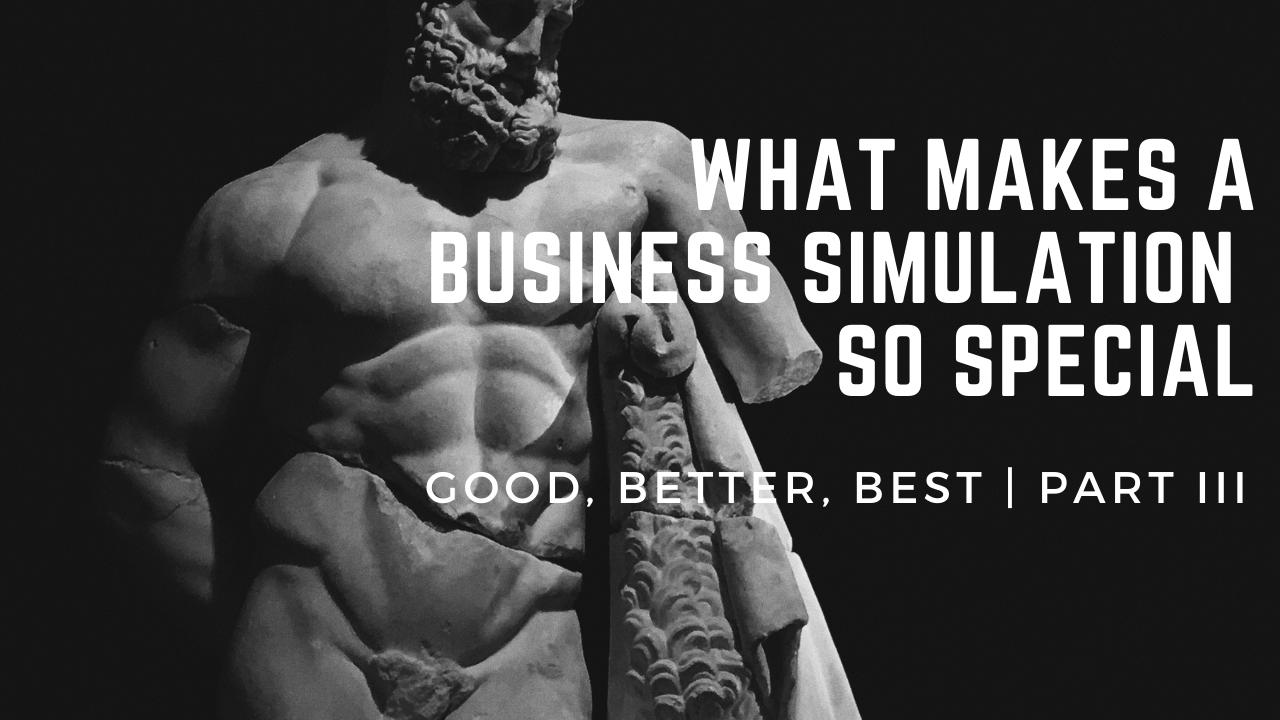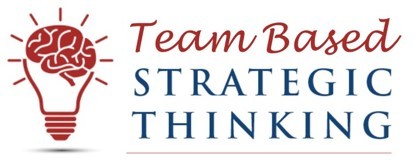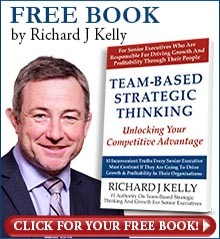
Good, Better, Best………
We are more familiar in observing this “fire” in our athletes which taps into their basic human instinct for survival. Top performers are described as having the “killer instinct”, that “eye of the tiger”. However, does the physical challenge of competing in the sports arena translate into the cognitive challenge of our business simulation workshops? If we want to run faster or jump higher, we know that we need to train ourselves physically for that endeavour. When the challenge is cognitive, we need to train ourselves to think better. It’s this concept of training the brain to think better (about business) that really got me intrigued. The world has so much at stake at the moment.
It seems for many there is a stigma to the word competition. Somewhere in the recent timeline of human endeavour the noble pursuit of excellence and humility in victory was replaced with a notion of win at all costs, showing mercy to your competition was an act of weakness. As Vince Lombardi the famous Green Bay Packers coach famously coined “winning isn’t everything it’s was the only thing”. Many then lived their lives by this motto and now when someone is described as being “overly competitive”, this is a euphemism for calling them aggressive and self-centred.
The 15th September 2020 marked the 20th anniversary of the Sydney Olympics opening ceremony. For those who lived in Sydney at the time, I don’t have to describe what a special time that was. We wanted to put on the best Olympics ever and we did!
Why do I bring up the Olympics? It would seem that the ideals of competition as espoused by the ancient Greeks in the first Olympics has somehow been lost in current generations. No one seems to talk about the virtues of competition. That is the idea that the only way one can push themselves to achieve their best is to compete. More specifically it is the process of competing and what that teaches us about ourselves, rather than the act of winning that is important. The ancient Greeks even had a term for this, Aretas.
In its basic sense aretas, means excellence of any kind. The term also implies a “moral virtue”. Aretas, this notion of excellence is ultimately bound up with the notion of the fulfillment of purpose: the act of living up to one’s full potential.
In fact the ancient Greeks did not fear that competition bred immoral behaviour. They believed that competition taught moral behaviour. Only by competing could people come to attain the full nobility of the human spirit. In simplest terms, they learned to fight fair, with honour and mutual respect for opponents. Aretas meant that competing had shaped you into a better person: competition challenged you to become the best you could be.
So, have I somehow rediscovered this by accident in the process of running a business simulation workshops?
Being a student of cognitive neuroscience I wondered if it could help me unlock the secrets. Why does this work? How does this work? What can I harness for future business simulation workshops that can make them even bigger and better?
What I discovered was that the modern study of cognitive neuroscience can help us unpack how the magic happens. That is we can take the research from physical competition and use it to better understand cognitive competitions and how they supercharge the rate of applied learning (for the advancement of humankind).
If you would like to find out more about the neuroscience of learning and the implications for business simulation design please feel free to contact me. click here
Links to PART I & PART II
PART I: THE ART & SCIENCE OF COMPETITION (click here)
PART II: LEARN TO WIN (click here)
“Good, better, best, never let it rest, until your good is better and your better best!” – St Jerome



